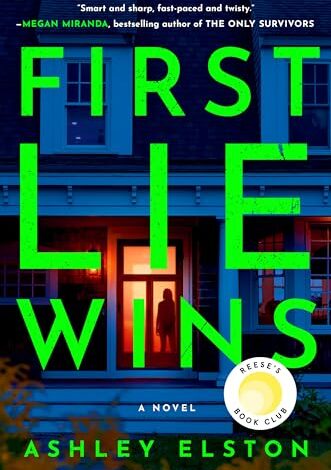AMAZON BOOKS
Exploring Literary Firsts: From the First Lie to Nobel Prize Winners

Introduction: Literature has a rich and diverse history, with various milestones marking its evolution. From the inception of storytelling to the modern novel, this article delves into the origins of literature, the first novels ever written, and notable figures in the literary world.
- Who wrote the first lie wins? The phrase “the first lie wins” is not associated with a specific work or author. It is a proverbial expression rather than a title of a literary work.
- What was the first novel ever written? Pinpointing the absolute first novel is challenging, but one contender for the title is “The Tale of Genji,” written by Lady Murasaki Shikibu in Japan around the early 11th century.
- How was the first book written? The first books were handwritten manuscripts, crafted by scribes or authors themselves. The invention of the printing press by Johannes Gutenberg in the 15th century revolutionized the process, making books more widely accessible.
- When was the first fiction book published? “The Tale of Genji,” often considered the first novel, was written in the early 11th century in Japan. However, the concept of the novel as a distinct literary form didn’t fully emerge until later centuries.
- What is the story of the first lie? The concept of the first lie is often rooted in biblical narratives, such as the lie told by Eve in the Garden of Eden. Exploring the cultural and historical significance of the first lie requires an examination of various religious and mythological texts.
- What is the book A Lie for a Lie about? “A Lie for a Lie” is a contemporary romance novel written by Helena Hunting. Published in 2019, it follows the story of a professional hockey player and a marine biology graduate student, exploring themes of love, trust, and secrets.
- Who is the father of the novel? Often credited as the “father of the novel” is Miguel de Cervantes, author of “Don Quixote,” published in two parts in 1605 and 1615.
- Who won the first novel? The concept of “winning” a novel is not applicable, as literature is not a competitive field in the traditional sense. However, “Don Quixote” by Miguel de Cervantes is widely regarded as a groundbreaking and influential work.
- Which is the first longest novel? One of the longest novels is “In Search of Lost Time” by Marcel Proust, published in multiple volumes between 1913 and 1927.
- What is the longest book ever? The Guinness World Record for the longest book goes to “Remembrance of Things Past” by Marcel Proust, the English translation of “In Search of Lost Time.”
- Who was the first person to read? Identifying the first person to read is impossible to determine, as reading likely evolved gradually within human societies.
- Who invented the first book? The invention of the first book is attributed to Johannes Gutenberg, who introduced the printing press around 1440, revolutionizing the production of books.
- Who won 3 Nobel Prizes? No individual has won three Nobel Prizes. However, Marie Curie received two Nobel Prizes, one in Physics (1903) and another in Chemistry (1911).
- Did Einstein win a Nobel Prize? Yes, Albert Einstein won the Nobel Prize in Physics in 1921 for his explanation of the photoelectric effect.
- What country wrote the first novel? The first novel, “The Tale of Genji,” was written in Japan, reflecting the country’s rich literary history.
- Who is the first novel in English? “Pamela; or, Virtue Rewarded” by Samuel Richardson is often considered the first English novel, published in 1740.
- Who is the father of the writer? The concept of a “father of the writer” is not commonly recognized. Writers often draw inspiration from various sources and experiences.
- Who is called the father of English? Often referred to as the “father of English,” Geoffrey Chaucer made significant contributions to English literature with his work, “The Canterbury Tales,” in the 14th century.
- Who is the father of poetry? Ancient Greek poet Homer is often regarded as the “father of poetry,” known for his epic poems “The Iliad” and “The Odyssey.”
- Who is the mother of English literature? The title “mother of English literature” is often associated with Julian of Norwich, an English mystic and author in the 14th century.
- Who is the father of modern literature? James Joyce is often considered a key figure in the development of modern literature, particularly with his groundbreaking work “Ulysses.”
- Who was the world’s first author? Determining the world’s first author is challenging, but ancient writers like Enheduanna, a Sumerian high priestess, are among the earliest known authors.
- Who wrote the first author? The question seems to be phrased ambiguously. If referring to the first author of a specific work, it would depend on the context.
- Who is the first famous author? The concept of fame in literature has evolved over time. Ancient poets like Homer and Virgil gained widespread recognition, contributing to the foundations of literary fame.


